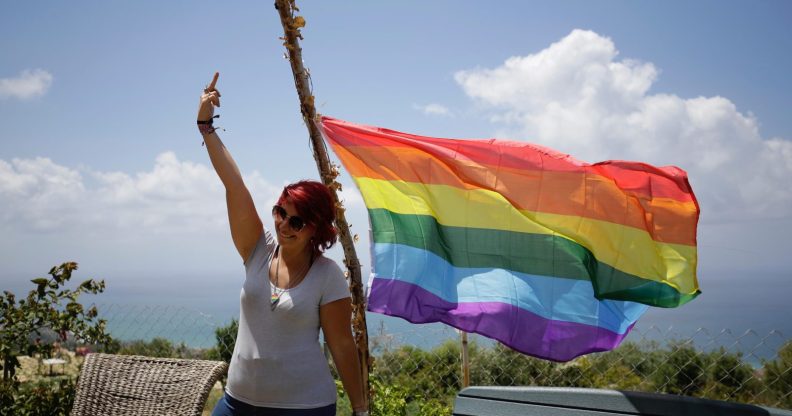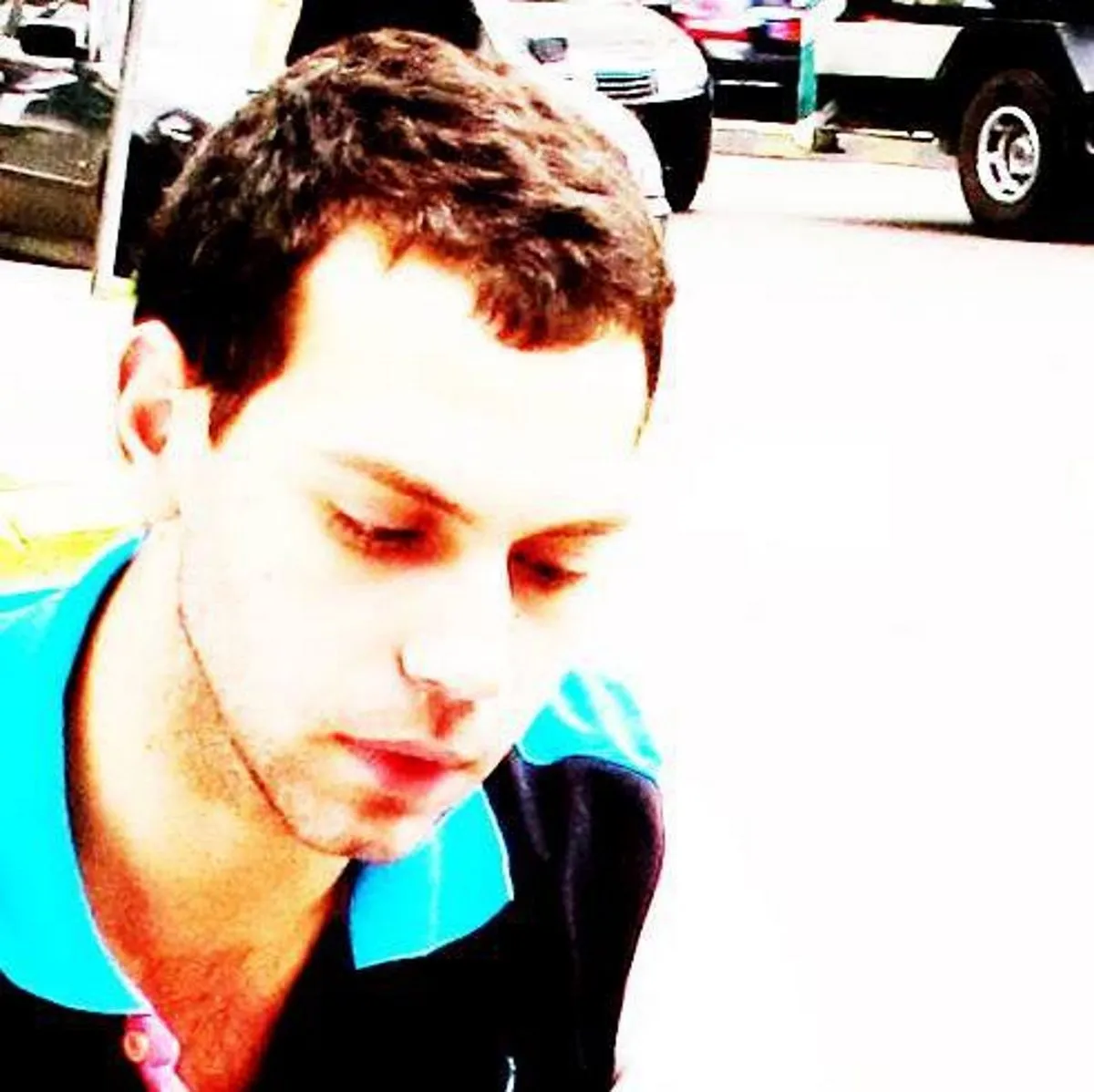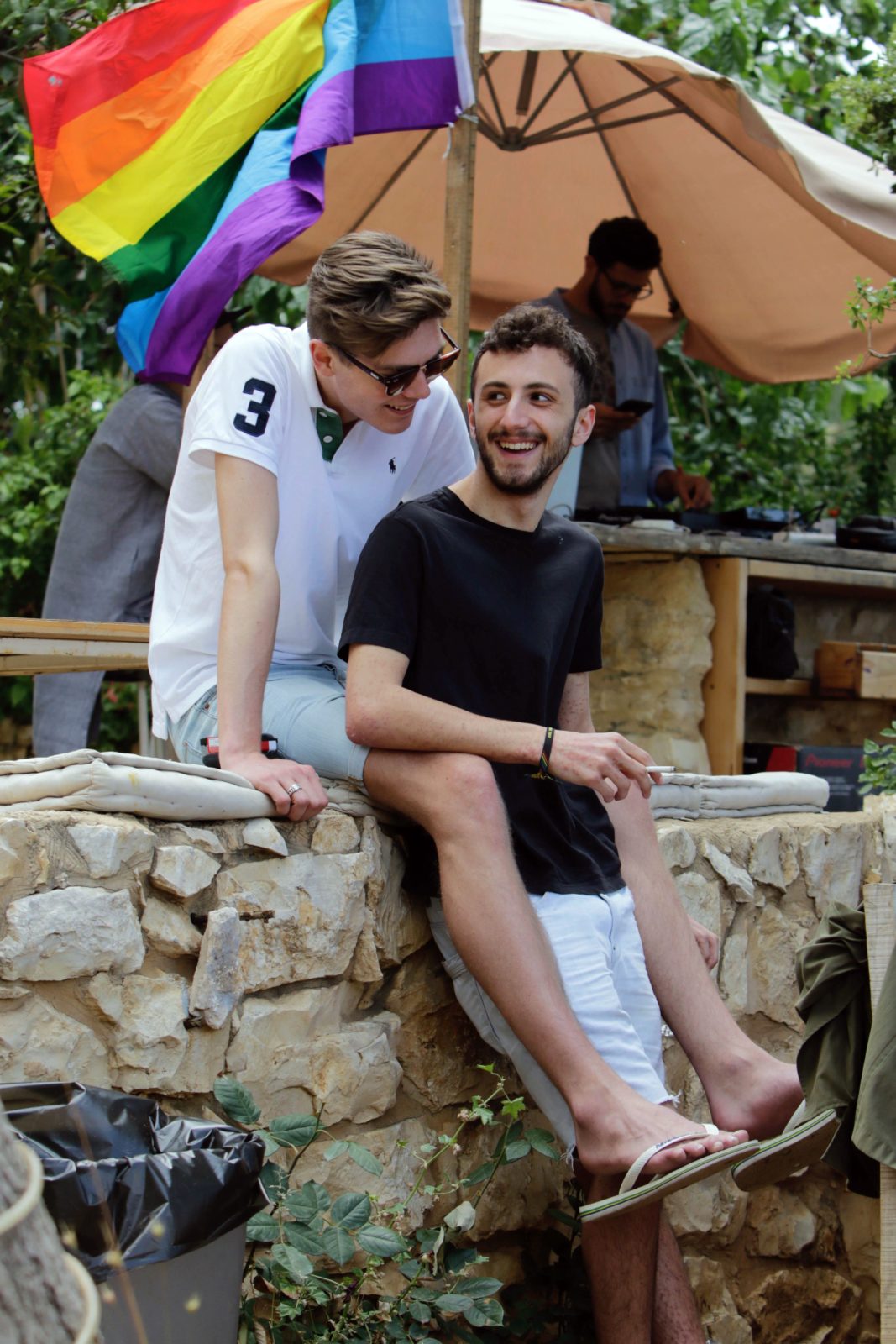Exclusive: Beirut Pride founder says he was forced to cancel events after threats of immorality charges

Members of Lebanon’s LGBTQ community attend a picnic the coastal city of Batroun, north of Beirut, on May 21, 2017, as part of the Beirut Pride week (IBRAHIM CHALHOUB/AFP/Getty Images)
The organiser of Lebanon’s Beirut Pride has claimed he was threatened with immorality charges if the annual celebration was not cancelled.
Hadi Damien, the director of the eight-day festival due to take place between May 12 and 20, was held overnight at Hbeish police station on Monday. He was released on Tuesday only after apparently being coerced into signing a pledge agreeing to cancel all Pride events.
Beirut Pride launched in 2017 and is believed to be the first LGBT+ event of its kind in the Arab world.
Damien told PinkNews that the trouble started on Monday when members of the censorship department from the Lebanese General Security interrupted a planned Arabic language reading of a theatre text about homophobia.
According to Damien, the censorship officers told “organisers that the reading cannot take place for the censorship office hasn’t approved the text.” He contests that the office had previously said readings do not require approval because it isn’t the same as a theatrical presentation.
“Meanwhile, members of other security bureaus were checking the place out, namely the General Security, the anti-vice police and the information bureau,” said Damien.
Damien said that a short while later members of the Beirut police vice squad “stormed the venue” and asked him to accompany them to the police station.
Upon arrival he was “informed that he was to spend the night in detention, waiting for interrogation.”

(hadi damien/facebook)
Damien said he “joined 38 detainees stuffed in a cell made to fit five people and spent the night on the floor. [I] was the only one detained from Beirut Pride.”
During an interrogation by the head of the vice squad on Tuesday, Damien was shown an Arabic language version of the Beirut Pride programme, which he said was an “ill-translation” of the genuine programme.
The doctored programme, he said, featured “sensational words to express debauchery and immorality” in an apparent bid to distort the planned Pride events as being more lascivious than intended.
“In order to prove the programme was fabricated, [I] asked the investigator to log onto the [Pride] website and compare the events written in Arabic to those displayed on the website and on the social media of Beirut Pride, highlighting the inappropriate use of some Arabic words I would not employ,” said Damien.

Members of Lebanon’s LGBTQ community attend a picnic the coastal city of Batroun, north of Beirut, on May 21, 2017, as part of the Beirut Pride. (IBRAHIM CHALHOUB/AFP/Getty)
According to the Pride director, this was not enough to convince authorities.
Damien claims that he was offered two options by the public prosecutor, the first of which was to cancel all Beirut Pride events and sign a pledge saying he would do so. In addition, he’d have to sign an attestation of residence document – so authorities could make contact with him at any time.
The second option Damien said he was given was, again, cancelling all Beirut Pride events but instead of signing the documents he would be detained, charged and investigated for “organising events considered to be inciting immorality and disturbance of public morals.”
Damien told PinkNews that upon the recommendation of his lawyer, he agreed to sign the pledge.
“In line with the ruling and the signed pledge, the events of Beirut Pride are suspended, and therefore they will not take place,” said Damien.
In Damien’s estimation, “Beirut Pride had no reason to be cancelled. Everything was properly organised, conforming to the law.”
“It is still too early to affirm why the cancellation happened, or which group was behind it,” he said. “Speculation does not do good.”

(beirut pride/facebook)
Damien said that though Beirut Pride has been cancelled, the concept of Pride “extends beyond borders.”
“It is therefore important to look at this happening as a challenge that fuels future initiatives, and not as a failure or as a setback,” he said.
Homosexuality is illegal in Lebanon under a law that prohibits sexual relations “contradicting the laws of nature.” People found guilty of sexual relations that contravene this law, such as same-sex relations, can be imprisoned for up to one year.
However, in January 2017, a Lebanese judge said that men in same-sex relationships shouldn’t be arrested under the law because “homosexuality is a personal choice and not a punishable offence”
Judge Rabih Maalouf cited an article in the Lebanese penal code enshrining freedom of expression. Article 183 states: “An act undertaken in exercise of a right without abuse shall not be regarded as an offence.”
The Lebanese Security General has yet to respond to PinkNews’ request for comment.
— Additional reporting by Josh Jackman

